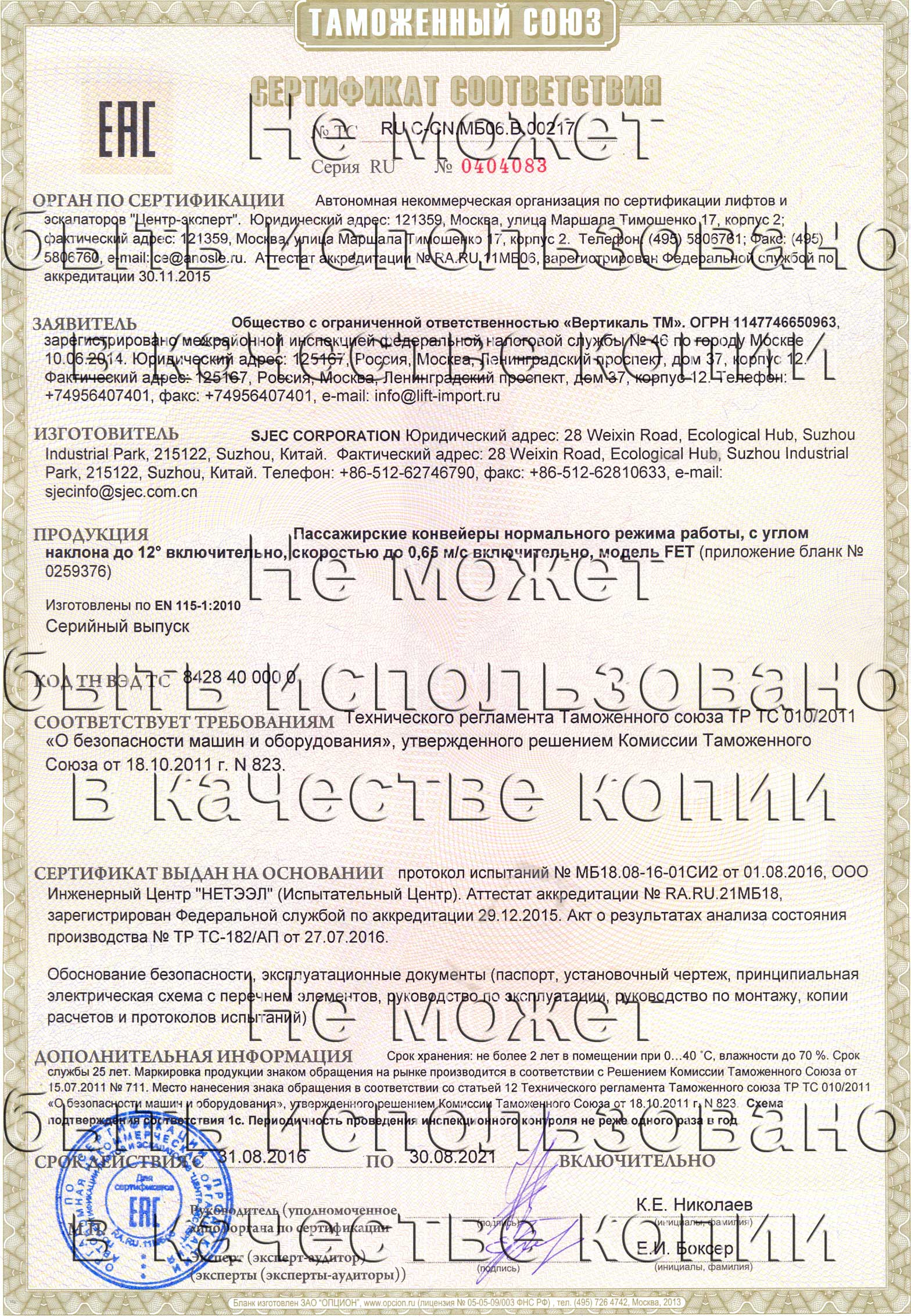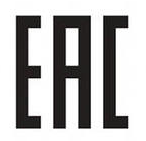Certificate of the Eurasian Customs Union
- What is the Eurasian Customs Union?
Customs Union is mutually beneficial trade cooperation of states. It facilitates turnover between all member states. Some customs duties have been canceled. A special Commission which consists of ministers and representatives of the ECU states coordinates and controls foreign trade policy.
The Custom Union Treaty was signed on October 6, 2007 between three Union States: the Republic of Belarus, the Republic of Kazakhstan and the Russian Federation. The headquarters of the Commission is located in Moscow, the capital of the Russian Federation.
- Certificate of conformity of the ECU
Certificate of conformity of the ECU is a guarantee that quality and safety of the product meets the requirements of international safety standards or technical regulations. Member states of the ECU recognize this document. It allows duty free sales of certain product categories on the territory of Belarus, Kazakhstan, Kirghizia, Armenia and the Russian Federation. Besides the time needed to obtain an authorization for the use of product has shorten because only one Certificate for five states is required. The turnover between these states has increased and expedited dramatically and had positive effect on their economies.
- Technical regulations of the ECU
- Several Technical regulations which govern requirements to children’s toys, children’s and teenagers’ goods, perfumes and cosmetics, personal protective equipment, packages, low voltage products and light industry entered into force on July 01, 2012.
- TR TS 005/2011 On safety of package
- TR TS 007/2011 On safety of children’s and teenagers’ goods
- Several Technical regulations which govern requirements to children’s toys, children’s and teenagers’ goods, perfumes and cosmetics, personal protective equipment, packages, low voltage products and light industry entered into force on July 01, 2012.
- TR TS 008/2011 On safety of toys
- TR TS 009/2011 On safety of perfumes and cosmetics
- TR TS 017/2011 On safety of light industry
- TR TS 019/2011 On safety of personal protective equipment
- Technical regulation which governs gasoline, diesel, mazut, marine fuel and jet fuel entered into force on December 31, 2012. Products must be declared to conform to the Regulation.
- TR TS 013/2011 On safety of automobile and aviation gasoline, diesel, jet fuel and mazut
- Technical regulations which govern low voltage and electrical equipment, portable and large machines, chemical equipment, oil-and-gas refining equipment, turbines, machine tools, fans, conditioners, burners, process equipment, industrial pipe fittings, tools, conveyors, elevators etc. entered into force on February 15, 2013.
- TR TS 004/2011 On safety of low voltage equipment
- TR TS 010/2011 On safety of machines and equipment
- TR TS 012/2011 On safety of equipment for handling explosive environment
- TR TS 016/2011 On safety of units burning gaseous fuel
- TR TS 020/2011 Electromagnetic compatibility of technical means
- TR TS 011/2011 Elevator safety
- Technical regulations which govern food products entered into force July 01, 2013.
- TR TS 015/2011 On safety of grain
- TR TS 021/2011 On safety of food products
- TR TS 022/2011 The labeling of the food products
- TR TS 023/2011 Technical regulation on fruit and vegetable juice products safety
- TR TS 024/2011 Technical regulation on fat-and-oil safety
- TR TS 029/2012 Nutritional supplements, flavoring and auxiliary substances safety requirements
- Technical regulations which govern pressure equipment: vessels, boilers, pipelines, fittings, small boats etc. entered into force on February 01, 2014.
- TR TS 032/2013 On safety of pressure equipment
- TR TS 026/2012 On safety of small boats
- Technical regulation which governs lubricating oils, special liquids and oils entered into force on March 01, 2014.
- TR TS 030/2012 Requirements to governs lubricating oils, special liquids and oils
- Technical regulations which govern milk production and meat entered into force on entered into force on May 01, 2014.
- TR TS 033/2013 On safety of milk and milk production
- TR TS 034/2011 On safety of meat and meat production
- Technical regulations which govern furniture that can be declared, children’s furniture that can be certify, explosives that can only be certified entered into force on July 01, 2014.
- TR TS 025/2012 On safety of furniture
- TR TS 028/2012 On safety of explosives and explosives-based products
- Technical regulation which governs automobiles and auto parts entered into force on January 01, 2015.
- TR TS 018/2011 On safety of wheeled vehicles
- Technical regulations which govern roadways and farm tractors entered into force on February 15, 2015.
- TR TS 014/2011 On safety of roadways
- TR TS 031/2012 On safety of farm and forestry tractors and trailers for them
- Types of Certificates of the ECU
There are two types:
-for conformance to the requirements of International Standards.
-for conformance to the requirements of technical regulations of the Customs Union.
These Certificates have a single view, form and issue conditions for all member states and they are valid through all the ECU territories.
All production certified in accord with the ECU regulations must be labeled with a single mark of product circulation on the market of the Customs Union member state.
 |
 |
- How to get a Certificate of the ECU?
There is a list of all permitted on the ECU territories products which can be certified and sold. There are also conditions of issue of the Certificate. This list was signed on June 18, 2010 by the Commission. Each product has its unique code. You need to know this code to find out if the product is in the list or ask us for help.
If the product is in the list and you want to sell it in the ECU territory, you need to get a conformation that it meets the requirements of safety standards and quality indications and then get a Certificate. The procedure of quality confirmation is unified for all member states and may take place in any of them. If it is successful, the product will be EAC labeled.
The Certificate is also unified and to get it the following information must be provided:
- For Russian manufacturers:
-bank details;
-founding documents (INN – Taxpayer Identification Number; OGRN – Main State Registration Number; the Articles of association);
-manufacturing regulatory document (technical conditions of manufacturing process or State Standard – GOST).
- For foreign manufacturers:
- bank details;
-name of the product;
-name and address of the manufacturer;
-technical specification of the product;
-Custom’s code CN FEA;
-a Contract between manufacturer and applicant (is necessary for some schemes).
- Scheme of the Certification process
There are a few of certification schemes. A Certificate can be issued for a limited consignment or for a batch production depending on amount of manufactured and imported production. A manufacturer itself or a seller can be an applicant even if the factory is not on the ECU territory. Some schemes include tests of the production and the manufacturing process. Contact our specialist to get an additional information about the Certification schemes.
Read more Schemes of Certification.
- The ECU Certificate term
A manufacturer and an applicant can choose a validity period for the Certificate but it cannot exceed five years. Usually the longest possible period is chosen because the Certificate is valid through all member states of the Customs Union. But if you are up to selling your products only in some countries you may want to have a Certificate with one-year validity period. It will allow you to analyze a demand for your product. After you may extend the Certificate if you need it.
- Advantages of the ECU Certificate
Mane advantage of the ECU Certificate is that now you don’t need five different certificates. It is the unified for all member states of the ECU. It means that the Certificate is cheaper and, consequently, more favorable for both – the seller and the customer. For seller it allows to increase import keeping prices on the same level. Processing period has also decreased. Moreover, there is a possibility of the expansion of the Custom’s Union and that will lead to the turnover increase.
If you need to get a Certificate or Custom’s declaration, please contact us. You’ll get an advice and qualified consultation. Our specialists will help you to choose the right scheme of the certification and safe your time and money!


